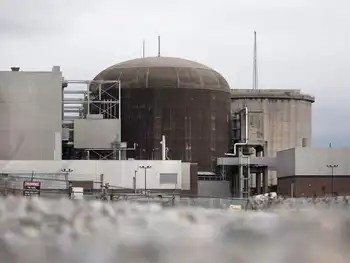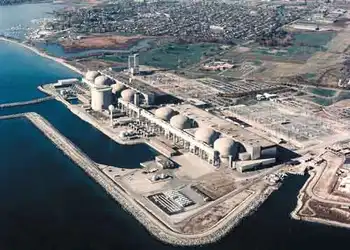Arroyo approves sale of Philippine power plants
MANILA -- - Philippine President Gloria Macapagal Arroyo approved the immediate sale of the generating assets of National Power Corp (Napocor) to cut the government's budget deficit and avert looming electricity shortages, an official said recently.
Arroyo also ordered officials working to privatise the assets of state-run and cash-strapped Napocor to resolve -- by this week -- whether to negotiate a contract or hold another bidding round to lease its transmission assets after a second attempt failed.
The first round in July saw Singapore Power Corp as the lone company to show an interest in the transmission facilities. At least two parties must be willing to bid for a round to proceed.
The government is expected to raise at least 50 billion pesos ($902 million) from the privatisation of power plants and transmission facilities -- it it can find the buyers.
"This morning, the president endorsed and approved the sale of the gencos (generating companies) and that they will start advertising them tomorrow," Allan Ortiz, president of National Transmission Corp, said in a speech.
The government originally planned to privatise the transmission assets of Napocor before it sold the power plants.
Foreign investors have shown little appetite for Philippine power assets, scared off by the uncertain regulatory environment and delays in passing a law granting a franchise to the firm that leases the transmission assets.
Ortiz said Arroyo wanted to privatise Napocor before next May's election. The government also realised it needed to upgrade facilities to avoid a power crisis and cut its deficit, he said.
"Napocor is a major contributor to that deficit and therefore we need to reduce Napocor's operating expenses," Ortiz said.
The government, which has managed to keep its fiscal shortfall in check so far this year after three blow-outs in 2002, has been subsidising the operations of Napocor. Next year, the power firm has debts falling due of $2.071 billion.
Ortiz said the country needed private firms to help it fund the nearly 97 billion pesos required to upgrade transmission facilities through 2011.
"We are not the best deal in the world as far as we can tell. We don't have a good story to tell," he said, adding the July 27 mutiny by rogue soldiers and a daylight robbery on August 25 of the main Citibank branch hurt the country's image overseas.
"We need to sell the country as an investment destination," Ortiz said. "That is our only way out." He said the government was working to address a power shortage on Panay island in the Visayas. The main island of Luzon will experience a power crisis in 2007 and Mindanao island by 2008 if no new facilities are built, he said.
Early this year, Arroyo said the Philippines, whose consumers pay some of the highest power charges in Asia, will need an additional 6,000 megawatts or more of generating capacity over the next 10 years.
Related News

Canadian nuclear projects bring economic benefits
TORONTO - The 13-year Major Component Replacement (MCR) project being undertaken as part of Bruce Power's life-extension programme will inject billions of dollars into Ontario's economy, a new report has found. Meanwhile, the major project to refurbish Darlington unit 2 remains on track for completion in 2020, Ontario Power Generation (OPG) has announced.
The Ontario Chamber of Commerce (OCC) said its report, Major Component Replacement Project Economic Impact Analysis, outlines an impartial assessment of the MCR programme. The report was commissioned by Bruce Power.
"Our analysis shows that Bruce Power's MCR project is a fundamental contributor to the Ontario economy. More broadly, the…




